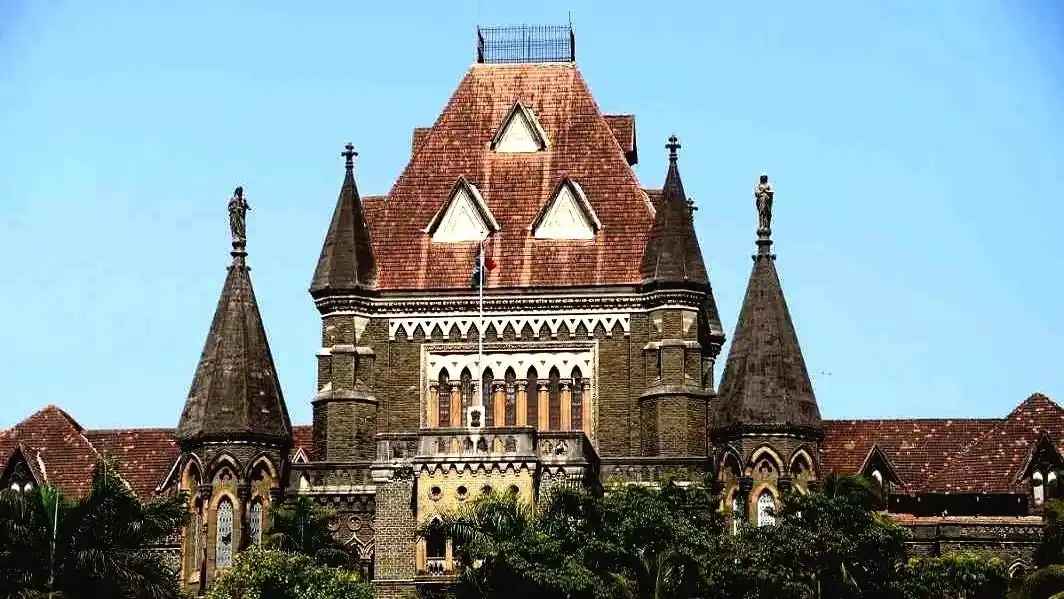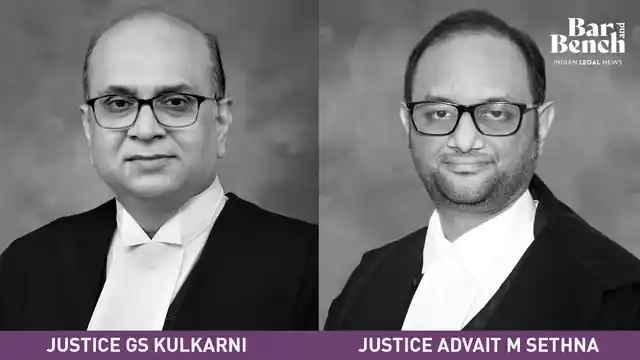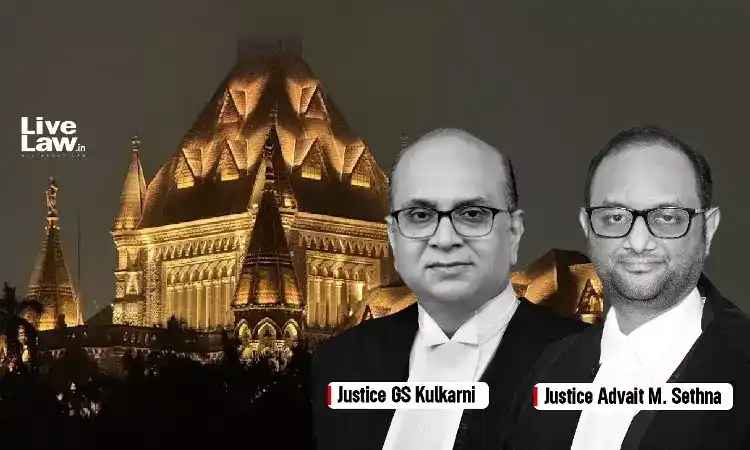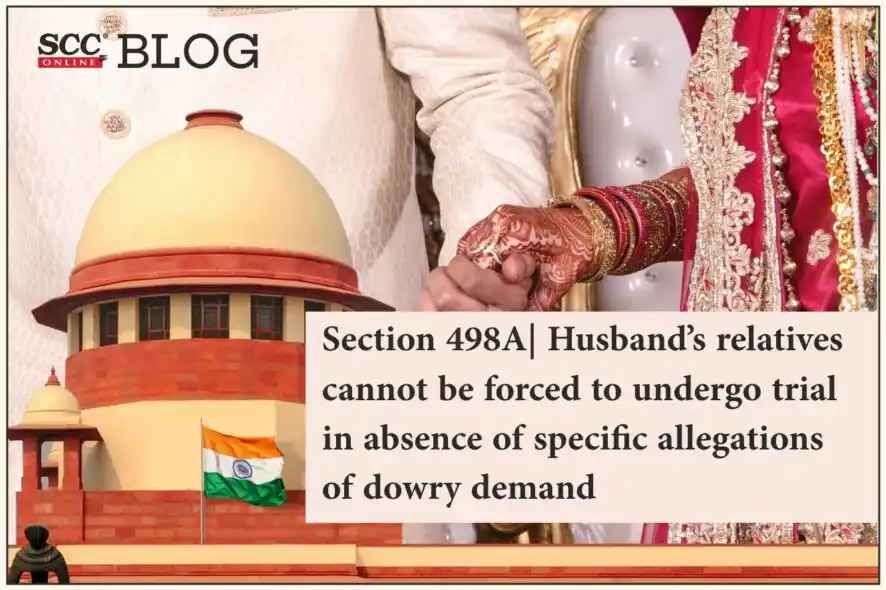Bombay High Court Ruling: False 498A Cases Are Legal Cruelty
Updated on : 13 January, 2025

Image Source: media
Introduction
The Bombay High Court's latest ruling changes everything we know about marital disputes. A spouse who files false complaints under Section 498A of the Indian Penal Code to "correct" their partner's behavior commits mental cruelty. This action now gives valid grounds to divorce.
The court's decision came from a couple's story that began in March 2006. Their marriage fell apart within months. False accusations destroy a marriage's foundation of trust completely. The court recognized how these baseless allegations create emotional trauma. The accused spouse's family faces social shame and stigma.
This ruling will change divorce proceedings forever. It redefines mental cruelty and transforms how courts handle marital disputes. The court's view on misusing legal provisions sends a clear message. Such actions can permanently damage relationships between married couples. The judgment protects innocent spouses from false allegations that could ruin their lives.
Understanding Section 498A of IPC
Let's take a closer look at Section 498A of the Indian Penal Code. This significant legal provision deserves our full attention. The government introduced this section in 1983 as a protective shield for married women who face domestic violence and harassment.
Original Intent and Purpose
Section 498A's main goals focus on three areas: protecting married women from cruelty, punishing those who make unlawful demands, and safeguarding women's safety and dignity in their marital homes. The law came into existence because India needed better legal remedies to address growing concerns about domestic violence.
Key Provisions and Legal Framework
Anyone who subjects a married woman to cruelty can face imprisonment up to three years and might have to pay a fine. The law splits cruelty into two categories:
- Willful conduct that could push a woman to suicide or cause grave injury
- Harassment linked to demands for property or valuable security
On top of that, it classifies these offenses as cognizable and non-bailable. Police can arrest the accused without a warrant, and getting bail requires a court appearance.
Bombay High Court's Interpretation

Image Source: Bar and Bench
The Bombay High Court gave an explanation about what counts as cruelty under Section 498A. A notable ruling stated that petty quarrels and minor domestic issues don't qualify as cruelty. To cite an instance, see how the court decided that comments about cooking skills or routine household matters don't meet the criteria for cruelty under this section.
So, proving cruelty under Section 498A needs two vital elements: willful conduct that could cause grave injury and harassment tied to unlawful demands. The court emphasized that these actions should be severe and persistent, not just one-off incidents.
The Rising Trend of False 498A Cases
The misuse of Section 498A cases has become a serious concern in India's legal system. Government data shows that more than 10,000 complaints of dowry harassment turn out to be false each year. These false cases make up much of the 90,000 to 1,00,000 cases that authorities examine annually.
Popular Blogs
Statistical Analysis and Patterns
Recent trends reveal that about 80% of cases filed at police stations prove to be false. The Bombay High Court has observed that many complaints arise from minor issues without proper thought.
Common Motivations Behind False Cases
Several key reasons drive people to file false 498A cases:
- Financial gain through extortion or settlement
- Personal vendetta against spouse or in-laws
- Making use of information in divorce proceedings
- Pressure from family or society
Social Factors Contributing to Misuse
Multiple factors drive this troubling trend. The non-bailable nature of Section 498A makes it an effective tool to harass others. People accused of these crimes face immediate arrest without proper investigation, which disrupts their personal and professional lives.
These cases leave a devastating social stigma. The accused find it hard to rebuild their lives even after being cleared of charges. False cases have started to damage the credibility of real victims, making it harder for genuine cases to get proper attention.
The Bombay High Court has raised serious concerns about this growing problem. They've pointed out how complainants often target whole families with broad accusations. This misuse affects both individuals and our judicial system by taking resources away from genuine cases of domestic violence.
Analysis of the Landmark Judgment
Let's get into the groundbreaking judgment by the Bombay High Court that has given us a new way to understand mental cruelty in matrimonial cases.
Key Observations by Chief Justice of Bombay High Court
The division bench of the Bombay High Court made a most important observation: filing false complaints to "correct" a spouse's behavior breaks marriage's foundation completely. The court made it clear that spouses who resort to false prosecution lose all reasonableness needed to maintain marriage's sanctity.
Legal Definition of Mental Cruelty
The court outlined these parameters that constitute mental cruelty:
- Sustained unjustifiable conduct affecting physical and mental health
- Actions that destroy trust and mutual respect
- Behavior that makes harmonious relations impossible
- False criminal proceedings causing social stigma
Therefore, the bench pointed out that putting a spouse and their family through false criminal proceedings creates an ordeal that doesn't belong in normal marital relations. Such actions corrupt the filing spouse's mind and make it impossible to maintain marriage's solemnity.
Significance of Intent in False Cases
The court's ruling puts substantial weight on the intent behind filing false cases. Of course, the judgment acknowledges that Section 498A protects women from genuine harassment, but its misuse for ulterior motives constitutes legal cruelty.
The bench noted that making vague and generalized allegations misuses legal processes. The sort of thing I love about this ruling is the court's observation that false prosecutions cause social stigma and unwarranted harassment to the accused spouse and their family members.
This judgment makes it clear that when everything in marriage gets damaged through false criminal prosecution, it becomes cruelty under Section 13(1)(i-a) of the Hindu Marriage Act.
Legal Precedents and Similar Cases
The courts have shaped how Section 498A is interpreted through many landmark judgments over the years.

Image Source: google
Previous Bombay High Court Judgements
Recent rulings show the Bombay High Court's firm stance against misuse of Section 498A. The court made a notable judgment that simply stating in-laws supported the husband's actions doesn't qualify as an offense under 498A. The bench pointed out a worrying trend where relatives get dragged into cases without solid evidence.
Supreme Court Guidelines on 498A
The Supreme Court created detailed guidelines to stop misuse. These include:
- Mandatory verification of complaints before arrest
- Careful scrutiny of evidence against distant relatives
- Protection against mechanical application of the law
The Court expressed worry that the conviction rate in these cases was merely 15% - the lowest among all categories. They warned against making arrests mechanically and stressed the need for proper investigation.
Progress of Judicial View
The judicial view has transformed considerably over time. The Supreme Court, in Sushil Kumar Sharma v. Union of India, acknowledged that Section 498A remains constitutional but shouldn't become a weapon for personal revenge. The Court also noted that even when FIR shows a cognizable offense, authorities should read between the lines to spot possible hidden motives.
The courts' position has grown to recognize that not every annoying matrimonial behavior counts as cruelty. They now emphasize that minor irritations and normal arguments between spouses shouldn't lead to criminal proceedings under Section 498A.
A recent Supreme Court observation stands out - police machinery cannot be utilized as a tool to hold husbands at ransom. This marks a key step in protecting both parties' rights while keeping the law's protective purpose intact.
Impact on Divorce Proceedings
Our analysis of divorce cases shows a major change in how courts look at false Section 498A complaints. The Bombay High Court's recent interpretations have altered the map of matrimonial disputes.
Grounds for Divorce Under Hindu Marriage Act
The Hindu Marriage Act states that filing false criminal complaints against a spouse amounts to mental cruelty. These actions give valid grounds for divorce because they damage the marriage's foundation of trust. Courts have ruled that just one false complaint proves matrimonial cruelty.
Role of False Complaints in Divorce Cases
False cases typically serve several purposes in divorce proceedings:
- People gain advantage in custody battles
- They secure better settlements
- They create pressure to get favorable outcomes
- They harass the spouse and their family members
The Bombay High Court ruled that knowingly filing false complaints breaks the marriage's foundation. A spouse who corrupts marriage's core values through false prosecution makes it impossible to keep its sanctity.
Burden of Proof Requirements
The spouse who claims false allegations must prove these points:
- The complaint lacks merit
- False accusations were intentional
- Mental trauma and social stigma resulted
False complaints affect more than just immediate legal proceedings - they create grounds for divorce based on mental cruelty. Courts emphasize that such actions expose the accused to criminal litigation and make married life impossible.
The Bombay High Court states that these false accusations show a complete loss of rationality. False cases can hurt job prospects and professional standing badly. Courts now look at these false allegations' long-term effects when they evaluate divorce petitions.
Psychological Impact on Families
The psychological burden of false Section 498A accusations goes way beyond the reach and influence of the courtroom. These accusations send shockwaves through entire families. Our research shows these cases trigger severe emotional distress and create serious mental health challenges for everyone involved.
Mental Trauma of False Accusations
Research data reveals that false accusations often lead to depression and chronic anxiety among the accused. Without doubt, mental anguish becomes worse when people face immediate arrest without proper investigation. Many victims suppress their emotions because society expects them to stay strong, especially when men feel they can't show vulnerability.
Effect on Extended Family Members
Elderly parents face the worst effects during their later years. Our documentation shows several devastating consequences:
- Broken social connections and support networks
- Declining physical and mental health
- Daily routines thrown into chaos
- Money problems from legal battles
Family relationships crack under pressure when elderly members get wrongfully implicated. These cases breed suspicion and fear within families and break down trust completely.
Social Stigma and Reputation Damage
False accusations leave deep social scars. Families struggle with:
- Immediate Impact: Career setbacks and job losses
- Social isolation from community groups
- Damage to years of built reputation
The stigma stays even after proven innocent, making it hard for families to start over. Legal fees drain family resources and lead to serious financial problems. Children suffer the most as they try to understand why their family faces false accusations.
Legal Safeguards Against Misuse

Image Source: google
The legal system has developed reliable safeguards to prevent misuse of Section 498A over the last several years. The Supreme Court has laid down complete guidelines that will give justice a chance to prevail.
Existing Protective Mechanisms
Several key protective measures are now in place:
- Family Welfare Committees in each district
- Mandatory preliminary investigation before arrests
- Consideration of anticipatory bail for outstation relatives
- Protection against arbitrary arrests without evidence
These mechanisms help filter out false complaints and ensure genuine cases get swift attention. The Family Welfare Committee must submit its report within one month after receiving the complaint.
Role of Investigation Officers
Investigation officers are vital in preventing misuse. The Supreme Court requires officers to:
- Complete specialized training programs
- Follow a detailed checklist before making arrests
- Document reasons for necessary arrests
- Submit investigation reports to magistrates
State governments have jurisdiction over enforcement; we have seen different implementation levels across regions.
Court-Mandated Guidelines
The Supreme Court's strict guidelines must be followed, emphasizing careful thought before arrests despite Section 498A's non-bailable nature. Courts now allow outstation family members to appear through video conferencing instead of mandatory physical presence.
Courts think over these factors for bail applications:
- Individual roles in the alleged offense
- Prima facie truth of allegations
- Necessity of further custody
- Overall interest of justice
The judiciary's steadfast dedication to preventing legal harassment while protecting genuine victims shows in these safeguards, which have helped reduce arbitrary arrests with regular monitoring keeping them working effectively.
Navigating Legal Proceedings
The first step in handling Section 498A cases is ensuring proper documentation and following procedures correctly; our experience shows understanding these elements can substantially affect case outcomes.
Documentation Requirements
Based on our case handling experience, you need these necessary documents:
- Medical reports and psychological assessments
- Previous police complaints or FIRs
- Witness statements and affidavits
- Electronic evidence (emails, messages, photos)
- Financial records and transaction details
Court Procedures and Timelines
Section 498A cases typically span between two to five years; complex cases might take ten to fifteen years depending on several factors:
- Evidence availability and strength
- Court workload in jurisdiction
- Cooperation between parties
- Complexity of allegations
The legal process begins when someone files an FIR at the local police station; police must verify complaint authenticity before making any arrests.
Importance of Legal Counsel
You should get experienced legal counsel right after receiving notice of a 498A complaint; competent lawyer support is vital because they:
- Understand case intricacies 2.Draft legal documents 3.Give expert guidance 4.Help with negotiations
Legal representation can speed up processes if you face false allegations; these cases often resolve within one or two years while those with strong evidence tend to conclude quickly; FIR quashing cases usually resolve within a year if you have enough evidence countering baseless accusations; Section 468 CrPC gives three-year window for filing complaints under this section.
Building Awareness and Prevention
Public awareness plays a vital role in addressing Section 498A misuse; the Bombay High Court’s approach helps us find effective ways stopping false allegations while protecting genuine victims.
Pre-Marriage Counseling Importance
Pre-marriage counseling proves to be a powerful tool that prevents matrimonial disputes. Couples who go through counseling handle conflicts better without legal measures. Former Health Minister KK Shailaja promoted mandatory pre-marital counseling, noting how it reduced violence against women.
The benefits of pre-marital counseling include:
- Improved communication between couples: Couples learn effective communication techniques that help them express their feelings and resolve conflicts.
- Better understanding of legal implications: Counseling provides insights into the legal aspects of marriage, helping couples understand their rights and responsibilities.
- Realistic expectations about marriage: Couples gain a clearer perspective on what to expect in marriage, reducing the likelihood of disappointment.
- Enhanced problem-solving skills: Counseling equips couples with tools to address issues constructively, fostering a collaborative approach to conflict resolution.
- Awareness of legal rights and responsibilities: Understanding legal rights can empower couples to navigate marital challenges more effectively.
Community Education Initiatives
Community education efforts show remarkable progress. The government launched detailed awareness campaigns to curb dowry-related law misuse. These initiatives focus on:
- Educational programs in schools and communities: Raising awareness among young people about healthy relationships and the implications of dowry.
- Legal literacy workshops: Informing individuals about their legal rights and the proper use of laws like Section 498A.
- Gender sensitivity training: Promoting understanding and respect between genders to reduce domestic violence.
- Family counseling centers: Providing accessible support for families facing conflicts.
The public's understanding changed after these programs started. NGOs played a key role in running extensive awareness campaigns that challenged traditional beliefs often leading to false cases.
Role of Media in Creating Awareness
Media shapes public perception powerfully. Its coverage of Section 498A cases brings both positive and negative effects. For example, the Rohtak Sisters case started as a harassment story but turned out to be false accusations, highlighting the need for responsible reporting.
Sensationalized reporting can strengthen stereotypes and biases that might encourage false cases. Media outlets must exercise caution and responsibility in their coverage of gender-related issues, ensuring they verify facts thoroughly and represent all parties fairly.
The Bombay High Court's guidelines taught us how media coverage affects public opinion and policy decisions. Social workers from Vimochana believe actual dowry-related deaths could be three to four times higher than official numbers, showing media's significant role in highlighting genuine cases while remaining objective.
Conclusion
The Bombay High Court's landmark ruling represents a transformation in how false 498A cases are handled. Our analysis reveals how misusing this legal provision destroys families and damages society. The court's recognition of false complaints as mental cruelty now protects innocent people who face wrongful accusations. Legal professionals and police must now verify and document 498A cases properly before taking action. This balanced approach helps genuine victims while stopping people from misusing the law. False accusations scar families with psychological trauma and social stigma that can last generations. Recent legal protections combined with pre-marriage counseling show positive results in reducing such cases. Media's responsible coverage and community education create a fair legal environment. This ruling will lead to more responsible use of Section 498A and ensure justice in real domestic violence cases. Success depends on striking the right balance between protecting women's rights and stopping legal misuse.
















